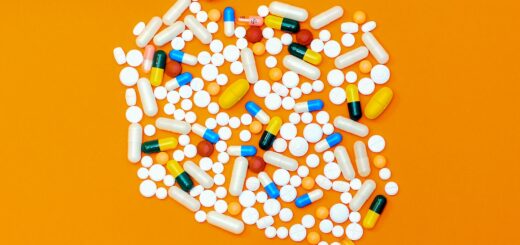Beta-Sitosterol: Your Key to Prostate Health and Wellness
Beta-sitosterol is a phytosterol, a substance derived from plants that resembles cholesterol, but functions differently. It offers various health benefits, such as alleviating symptoms of enlarged prostate (BPH), improving urinary and sexual health, and potentially aiding in the fight against prostate cancer. Beta-sitosterol can be found in several plants, including saw palmetto, rice bran, soybeans, pumpkin seed, peanuts, and pecans.
Research suggests that beta-sitosterol acts similarly to finasteride (Proscar), a prescription drug used to treat BPH. High doses of beta-sitosterol, when combined with other sterols, have shown a reduction in total cholesterol and low-density lipoprotein (LDL) cholesterol levels by limiting the absorption of cholesterol in the body. This mechanism may also inhibit the production of dihydrotestosterone (DHT). Additionally, there is some evidence supporting the immune-boosting properties of beta-sitosterol.
NOW Foods, Beta-Sitosterol Plant Sterols, 180 Softgels
Beta-Sitosterol and BPH A study conducted in India in 2012 examined the effects of beta-sitosterol and scopoletin, both derived from stinging nettle, on testosterone-induced benign prostatic hyperplasia in rats. The study measured urine output, prostate weight, and other factors over a 28-day period. The researchers concluded that these components of stinging nettle could be effective in managing BPH.
In a six-month study published in Lancet, 200 men with BPH were given 20 mg of beta-sitosterol or a placebo three times a day. At the end of the study, the participants taking beta-sitosterol experienced an increase in maximum urine flow rate and a decrease in residual urinary volume, while no changes were observed in the placebo group.
In a subsequent 18-month follow-up study, men from both the beta-sitosterol and placebo groups were given the option to continue taking beta-sitosterol. The study showed that the beneficial effects of beta-sitosterol were maintained over the additional observation period.
A randomized, double-blind, placebo-controlled clinical trial conducted in 1997 involved 177 men with BPH. The trial evaluated the efficacy and safety of 130 mg of free beta-sitosterol compared to a placebo. The results showed significant improvements in the beta-sitosterol group in terms of the International Prostate Symptom Score (IPSS), quality of life, peak urinary flow rate (Qmax), and post-void residual urinary volume.
A review of existing studies published in 2000 analyzed the effects of beta-sitosterol in men with BPH. The review included four randomized, placebo-controlled, double-blind trials with a total of 519 participants. The investigators found that beta-sitosterols improved urinary symptom scores and peak urine flow, but did not reduce prostate size. The conclusion was that beta-sitosterols can improve urinary symptoms and flow measures.
Beta-Sitosterol and Prostate Cancer In terms of prostate cancer, beta-sitosterol has shown limited benefits. A study conducted in France demonstrated that beta-sitosterol had a mild inhibitory effect on the growth of prostate cancer cells.
Using Beta-Sitosterol When purchasing beta-sitosterol supplements, ensure that the label clearly states the amount of beta-sitosterol present. If the supplement contains multiple plant sterols, beta-sitosterol should account for at least 50 percent of the total sterol content. Potential side effects of beta-sitosterol may include nausea, gas, and diarrhea.
For optimal absorption, it is recommended to take beta-sitosterol on an empty stomach. It usually takes two to three weeks to observe the effects of beta-sitosterol, and the dosage can be adjusted once symptoms improve. It is advisable to consult a knowledgeable healthcare provider for more information on the proper use of beta-sitosterol.







